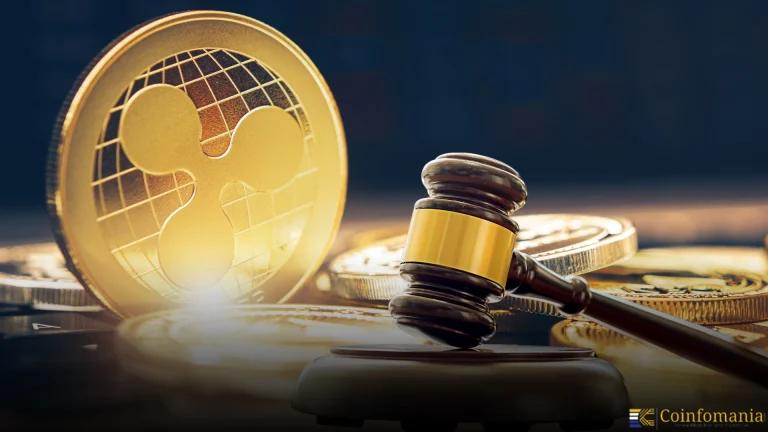Cryptocurrency Regulations in Malaysia
Cryptocurrencies have been cautiously regulated in Malaysia. The government doesn’t accept them as legal tender but permits their trade as long as they are traded under a strict regulatory circuit. They are treated as securities and thus have to be subject to financial laws instead of being outright banned. For investors, businesses and users to […]

Cryptocurrencies have been cautiously regulated in Malaysia. The government doesn’t accept them as legal tender but permits their trade as long as they are traded under a strict regulatory circuit. They are treated as securities and thus have to be subject to financial laws instead of being outright banned.
For investors, businesses and users to understand Malaysia’s cryptocurrency regulation is necessary. Compliance helps avoid penalties and take advantage of a growing digital asset market. The tax rules are in place, licensing has been instituted, and talks are apparently underway as to whether there should be an official national digital currency. Which means you need to stay informed.
The key regulatory bodies are:
- Securities Commission Malaysia (SCM) – Oversees digital assets as securities under the Capital Markets and Services Act 2007.
- Cryptocurrency has been warned against using for making payments as it is not legal tender by Malaysia’s central bank, Bank Negara Malaysia (BNM) which monitors systemic risks.
- IRBM (Inland Revenue Board of Malaysia) – Will enforce on crypto income and other income under tax laws.
Historical Context
Among the worries in the early 2010s around volatility and fraud, Malaysia’s central bank or BNM (Bank Negara Malaysia) even released warnings against cryptocurrencies, including Bitcoin. As early as 2014, BNM declared that Bitcoin is not a legal tender and that it is advisable to be careful in its use.
As of the beginning of 2019 some of the digital currencies and tokens have already been declared as securities of Securities Commission Malaysia (SCM) and as such, they fall under a formal regulation. This was a big milestone whereby all crypto exchanges were supposed to get licensed and be compliant.
And after the government strengthened the AML controls in February 2022, and adopted their Global Crypto Travel Rule. Potential new crypto and blockchain legislation announced by Malaysia’s Prime Minister would set a more structured and forward thinking approach for regulation.
Regulatory Framework
This structure, Malaysia’s own framework, focuses on regulating cryptocurrencies under security law. Also, below are the key areas of regulation.
Key Regulatory Authorities
- Digital currencies are supervised by SCM as securities.
- BNM judice caution and works on monetary stability.
- Crypto taxation and compliance are done by IRBM.
Licensing and Registration Requirements
For crypto exchanges to be operational, they are obliged to register with SCM and follow guidelines on the establishment of Recognized Markets. Four platforms, namely: Luno, MX Global, SINEGY Technologies, and Tokenize Technology are officially registered and licensed as of 2025.
AML & KYC Requirements
AML and Know-Your-Customer (KYC) protocols must be followed by exchanges. As of April 2022, the Crypto Travel Rule had gone into effect which requires a sharing of sender and receiver data on transactions to combat financial crime.
Taxation of Cryptocurrency
There are no capital gains taxes for crypto investments in Malaysia. But also, revenue from frequent trading is taxable as income. As in the case of active traders, Section 3 of the Income Tax Act 1967 requires accounting of earnings and keeping accurate records.
Regulation of ICOs and STOs
ICOs and STOs are all under the jurisdiction of the SCM. This required that these assets have similar disclosure and registration standards to those of traditional securities.
Malaysia Crypto Policies
Though Malaysia allows crypto trading under controlled conditions, it is not advocated to use crypto as a medium of exchange. By the same token, BNM stresses that cryptocurrencies are not legal tender and should not be used for payment in place of the ringgit.
There is no direct regulation of crypto mining. It is not clear whether or not there are any explicit laws written, but it may be regulated under the financial rules if attached to activities centered on large-scale mining or activities that generate income.
Malaysia is looking into introducing a Central Bank Digital Currency (CBDC). One is improving payment efficiency and resilience, which BNM is considering as wholesale and retail CBDCs. Further, the country also supports blockchain development by running initiatives such as the SCxSC FinTech Conference.
Failure to comply with crypto regulations could mean the end in the form of fines or a jail sentence. Activities conducted without a license or in contravention of AML and securities law requirements are subject to penalties.
Malaysia’s Approach to Crypto Innovation
There is no dedicated crypto regulatory sandbox in Malaysia but it encourages innovation through wider fintech efforts. Held annually since 2014, the SCxSC Conference is where startups and regulators talk about emerging technologies.
The number of Malaysians reported to own digital assets is now up to about 20% of individuals. Nonetheless, business adoption is still restricted, given the regulatory stance and the non-legal status of crypto.
Malaysia’s government supports it and has begun studies into a central bank digital currency, showing its commitment to going digital. The role of crypto ecosystem development with regulated conditions is undertaken by private sector exchanges such as Luno and Tokenize.
Notable Challenges and Issues
There are inconsistencies in Malaysia’s crypto regulation, specifically with regard to peer-to-peer (P2P) trading. In licensed exchanges, they are well regulated but unregistered platforms usually operate in those legal gray areas.
After all, enforcing rules on global platforms like Binance is no easy feat. Yet another reason why cryptocurrencies are not suited for AML compliance is the decentralized nature of the transactions—therefore, it is hard to track these transactions.
Public perception is mixed. Adoption is rising as people are carefully unearthing government warnings. There are benefits and risks of crypto—and media and financial experts tend to focus on both.
Regulatory Trends Outlook
In January 2025, Malaysia’s prime minister hinted at another crypto and blockchain legislation. It might make regulatory clarity and safe innovation possible. BNM is still considering how CBDC can be used for payments and financial stability.
However, experts believe that Malaysia will soon introduce clearer rules on crypto assets that include potential tax reforms and formal recognition of some of the crypto products. Nevertheless, crypto is not likely to become a legal tender in the short run.
Malaysia is also a financial hub in Southeast Asia and the choices that its authorities make about regulating crypto may serve to influence crypto policy throughout neighbouring countries. Foreign investment and regional leadership of digital finance can be supported by a well-balanced framework.
Conclusion
In terms of how Malaysia handles the cryptocurrencies, Malaysia is moderate. Despite crypto assets being illegal tender, the chain is permissible under SCM and those subsidiary financial bodies oversight. Along with the blockchain innovation, a CBDC is also being looked into by the country.
To ensure that investors and businesses stay on the legal side of business and don’t get penalized, it is good to know the local rules. Given that regulatory changes are expected in the near future, it is important to be aware of what is happening in Malaysia regarding its crypto environment.
Frequently Asked Questions (FAQs)
1. Is cryptocurrency legal in Malaysia?
Yes. And while registered platforms can be used to make trades in cryptocurrencies, they are illegal tenders.
2. Is it possible to use cryptocurrency for payments in Malaysia?
No, cryptocurrencies are not accepted by BNM as means of payment.
3. Does Malaysia regulate the crypto exchanges?
Yes. SCM registers platforms, and expects the platforms to abide by legal and compliance requirements.
4. Is crypto gain in Malaysia taxable?
Capital gains are not taxed whereas income from frequent trading is taxable.
5. Is Crypto mining legal in Malaysia?
Mining is not explicitly regulated, however mining is supervised generally, in connection with financial and AML regulation.
6. What is Malaysia’s vision for CBDC?
BNM is also looking into the domestic and crossborder use of wholesale and retail CBDCs.
7. Are ICOs allowed in Malaysia?
Yes treated as securities and subject to regulation by SCM.
8. What penalties exist for non-compliance?
Fines or prison is possible if you will operate without a license or you will engage in AML (Anti Money Laundering) violations.
9. How many Malaysians use crypto?
According to recent reports, approximately 20% of the population owns the crypto
10. Which crypto exchange is the best to legally use in Malaysia?
Through SCM-registered exchanges like Luno, MX Global, SINEGY, and Tokenize are the best to legally use in Malaysia.
Follow us on Google News
Get the latest crypto insights and updates.
Related Posts

Ripple Highlights Custody as Key to $18.9T Tokenized Assets by 2033
Shweta Chakrawarty
Author

Hong Kong SFC Issues New Custody Rules for Crypto Platforms
Shweta Chakrawarty
Author

South Korea and Vietnam eye $150B trade despite Trump tariff
Shweta Chakrawarty
Author